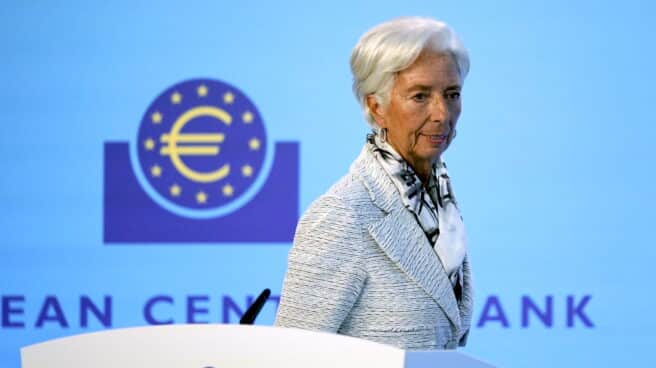

Christine Lagarde.
The European Central Bank lived up to its expectations and raised interest rates by 0.5% to 3.5% despite the Credit Suisse crisis. The European body clearly understands that its mission is to bring inflation down to 2% in the medium term. The latest available data show that the consumer price index ended February at 8.5%, which remains at its highest levels. This week was marked by the Credit Suisse banking crisis, which caused an earthquake in the European banking system.
In a statement, the supervisory authority assured that the Governing Council is monitoring market tensions and is ready to respond as necessary to maintain price stability and financial stability in the euro area. “The banking sector in the area is resilient and has a solid capital and liquidity position”the statement says.
It is also emphasized that the ECB has all the necessary tools to support banks. “We have all the necessary monetary policy tools to support the liquidity of the financial system. euro area, if necessary, and maintain a smooth transition of monetary policy,” he notes.
The ECB was reluctant to abandon its roadmap and continued on the path it started eight months ago with the first rate hike in eleven years. Before the Silicon Valley and Credit Suisse crisis hit, the ECB was determined to raise rates by 50 basis points to fight inflation. The goal of the organization is to place it at the level of 2%, and this is a goal that has been set despite a possible economic recession in the eurozone. However, the collapse of the Swiss bank targeted the European body, which decided to make it clear that there was no risk of contagion.
This Wednesday, Credit Suisse collapsed on the stock market by 25% and infected the rest of European banks. This forced the ECB to ask all institutions for their risk in a Swiss bank. In the case of Spanish banks, the risk does not matter, so “there will not be a big panic.”
economic forecasts
At this meeting, the ECB is also reviewing its macroeconomic forecasts for the euro area. These new forecasts were made before the recent banking crises. ECB experts expect inflation to reach 5.3% in 2023. one percentage point below the previous forecast of 6.3%. CPI closed February at 8.5%.
However, inflation will not reach the ECB target until 2025, as predicted at previous meetings, when it will be 2.1%. For 2024, the inflation forecast is 2.9%.
“At the same time, underlying inflationary pressures remain strong,” they said in a statement. Inflation excluding energy and food continued to rise in February, and ECB experts expect it to average 4.6% in 2023, higher than expected in December forecasts. Subsequently, will fall to 2.5% in 2024 and to 2.2% in 2025.in the context of the fading of upward pressures from previous supply shocks and the recovery of the economy, as monetary tightening increasingly constrains demand.
As for growth, ECB expects Eurozone GDP to grow by 1% as a result of both falling energy prices and greater resilience of the economy in the face of challenging international conditions. ECB experts expect growth to pick up further, hitting 1.6% in both 2024 and 2025, thanks to the strength of the labor market, rising confidence and a recovery in real incomes. At the same time, growth recovery in 2024 and 2025 is weaker than forecast in December, “due to monetary tightening.”
Source: El Independiente